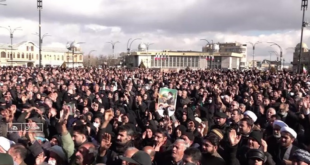To fight modern organized crime, the Balkan countries must work together to improve security and stability in the region, a regional security conference in Sarajevo has concluded.The conference – titled “Balkan security – The challenges within cyber infrastructure“ – was held in Sarajevo on September 13, and it was attended by the Internal Affairs ministers of Serbia, Croatia, Macedonia and Montenegro.
Sadik Ahmetovic, the Bosnian Security Minister, whose ministry organised the conference together with the American university in Bosnia and Herzegovina, said that organized crime in the region is increasingly going online and as such should be fought internationally.“In the near future, organized crime will use electronic means to facilitate the distribution of drugs, child pornography, human trafficking and terrorism. This clearly makes it one of the global threats to regional security,“ said Ahmetovic.
The Serbian Minister of Interior, Ivica Dacic, agreed with Ahmetovic’s assessment, saying that in the past few years the Serbian police has registered more than 4,000 cases of identity theft, terrorism and trafficking.
“This is why we want to be part of an international alliance that will fight this type of organized crime. This is one thing the region should do together, to help keep its people safe,” said Dacic.
The ministers have signed a common statement, in which they vowed to organize annual meetings of high-ranking police officers fighting organized crime.
They also promised to create regional analytical and strategic documents for the common fight against cyber-crime.
The ministers agreed that there was a need for a “stronger partnership” between regional governments, economies and security systems to enable sustainable growth, which is not threatened by crime.
However, one of the most important conclusions of the conference, in the view of Gordana Jankuloska, the Macedonian Minister of Internal affairs, was the promise to create a common specialized training and education system for officers fighting organized crime.
“We are dealing with cases where most of the evidence is digital. We need to improve and build the knowledge and know-how of our officers regionally, so that they can collect and expertly examine this evidence,” added Jankuloska.
 Eurasia Press & News
Eurasia Press & News



